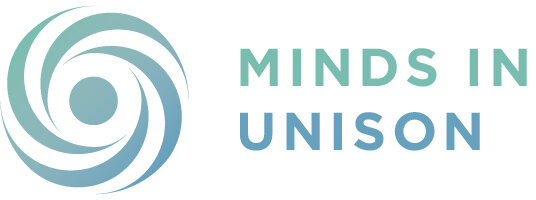Job interview nerves
Nerves are an unavoidable part of the interview process and affect us all, so don't equate this to failure or weakness. It's a perfectly normal human response as your body prepares you for a challenge.
Your interviewers will expect you to be nervous, but the following suggestions can help to lessen the symptoms and enable you to present yourself in the best way possible.
Preparation
One big reason we get nervous before interviews is a fear of the unknown, and while we never know every question we might be asked, preparing for the most common questions will go a long way to reducing nervousness. Before going to the interview, research the company, practice your responses to common interview questions, have a mock interview with a friend, and review your CV so that you can confidently cite qualifications and experience that are relevant to the role. (See common interview questions below).
Positive affirmations
Positive thinking can help with combating negative self-talk or nerves. Take time out to reflect on how you feel and write down anything in particular that’s making you nervous or worried. For example:
I'm worried I won't be able to answer a question.
All the other candidates will be better than me.
I’ll talk too fast and get flustered.
I don’t have the right qualifications or experience.
Next, write down positive statements that counteract these fears or concerns. For example:
I’m really well prepared and will be able to answer all the questions.
The interviewers will be impressed by my passion for the role.
I’ll talk calmly and slowly, with confidence and authority.
I’m suitable for this position and wouldn't have been shortlisted otherwise.
Say your positive affirmations out loud and repeat when needed.
Reframe your stress response
One of the most effective emotional regulation techniques in cognitive behavioral therapy (CBT) is known as cognitive reappraisal - also called cognitive reframing or cognitive restructuring. At its core, cognitive reappraisal involves changing the way you think about a situation to alter your emotional response. Think of it as putting on a new pair of glasses that helps you see the same scenario differently.
Cognitive reappraisal helps individuals see challenges as opportunities, boosting motivation and enhancing decision-making. It reduces negative emotions not by avoiding them or suppressing them, but by refocusing attention on aspects of a situation that stimulate positive emotions. In addition, by lowering emotional arousal, cognitive reappraisal enables people to think rationally, opening up the door to problem solving and forward movement toward their goals.
The process involves identifying distorted or unhelpful thoughts, challenging their accuracy, and replacing them with more effective ones. For example, instead of thinking, “I’ll never succeed,” you might reframe the thought as, “I’ve faced setbacks before and eventually made progress.” By altering how you perceive situations, you can dial down negative emotions, making it easier to address triggers and maintain emotional balance. From that calmer, more rational state, you’re better able to respond thoughtfully, rather than react impulsively.
Athletes frequently use cognitive reappraisal to manage performance anxiety. Instead of viewing a high-stakes competition as a threat, they may choose to see it as a platform to showcase their skills and test their limits. Executives and professionals can use the same technique during presentations or challenging negotiations, reframing the pressure as an opportunity to demonstrate their expertise. Try using this technique to embrace your stress during the interview.
Breathing exercises
Slow, deep breathing exercises can be very helpful for calming down your mind, body and heart rate, and helping you manage your nerves. These can be done anywhere and at any time. Try breathing in for a count of 7, then breathe out for a count of 11. Within 3 to 4 breaths the adrenaline response associated with stress related symptoms will calm and enable you to focus.
Mindfulness
Mindfulness helps you to connect to what’s happening right now, rather than reliving scenes from the past or getting worried about what might happen in the future. Practising mindfulness can help you to manage fear, anxiety and stress, and tackle unhelpful thinking before and during interviews.
The night before
If things don't run smoothly or go wrong, this can make your nerves or stress levels a lot worse. Try and eliminate as many potential stressors as possible and pre-empt potential problems by planning and preparing the night before.
Check you have all your paperwork.
Rehearse/memorise your route to the interview and have a travel plan.
Plan your outfit and lay your clothes out ready.
Pack your bag with everything you’ll need.
Prepare your breakfast/lunch in advance.
Do something relaxing before bed and do all you can to get a good night's sleep.
Being well prepared will make you feel calmer and more in control, which in turn can reduce nerves and stress. It also means you’ll be able to maximise your time on the big day.
Interview day
Make sure you eat something.
Stay well hydrated and drink plenty of water.
Have one last look at your interview notes.
Practice your positive affirmations.
Leave plenty of time to get to the interview.
Concentrate on taking really deep breaths, filling your lungs, to help control adrenaline.
Take a walk and get some fresh air if possible. Exercising helps to work out any excess adrenaline and will help to make you feel better by releasing the body’s natural mood enhancing chemicals.
Focus outward and not inward. Noticing the world around you is a great way to take your mind off your nerves. Try focusing on an object and noticing the detail, or counting as many colours as you can see.
When you arrive, don't be afraid to ask for some time to take a toilet break, freshen up, or drink some water.
Relaxing the shoulders and muscles in the face and neck will help you to feel calm. Practice this activity by doing a body scan exercise while you’re waiting.
Interview tips
Remember to smile. Smiling releases endorphins, which make us feel better.
Maintain open body language and eye contact.
Sit in a comfortable position, maintain good posture, and try to avoid nervous fidgeting.
If you don't understand a question, ask for it to be repeated or rephrased. You can even ask if your interviewer can come back to it later.
Take time to consider your answers. Pausing before speaking gives you more time to put together a thoughtful and composed response.
Make a conscious effort to speak slowly, as nerves generally make us talk faster.
Remind yourself that the interview is a conversation - not an interrogation, and is your opportunity to find out if the position and the company would be a good fit for you. Having questions at the ready and being curious can help to create a more equal power dynamic and lessen feelings of intimidation.
Common interview questions
Tell me about yourself. They want to know about your professional journey. Identify 2 or 3 relevant achievements.
Why are you interested in this role? Connect your goals to their mission. Highlight specific aspects of the role that excite you.
What are your strengths and weaknesses? Identify a strength that’s essential to the role. Back it up with an example of past performance. Choose a weakness that isn’t relevant to the role. Explain how you’re trying to improve.
Describe a time you faced a challenge at work. Use the STAR method: Situation, Task, Action, Result. Focus on the positive action you took.
How do you prioritise your work? Explain the system you use such as ‘to-do lists’ or ‘time blocking’, and how you manage when things change. Show flexibility.
Questions to ask your interviewers
Asking questions of your interviewer(s) shows them you’re genuinely interested in the job and creates a memorable impression. It also helps you decide if it would be a good fit for you.
Ask about the role's daily tasks, performance expectations and challenges, the team and company culture, and opportunities for growth and development.
What does a typical day in this role look like?
What are the biggest challenges someone in this position might face?
Who will I be working with most closely?
How would you describe the company culture?
What are the opportunities for professional development or training?
What does career progression look like for someone in this position?
I hope these suggestions will help to reduce your stress levels, build resilience, and promote a more balanced, proactive mindset that will lead to a successful outcome. Good luck!
Thank you for reading this blog post. If you have any thoughts to share or ideas for future posts, please do let me know. I would love to hear from you.



